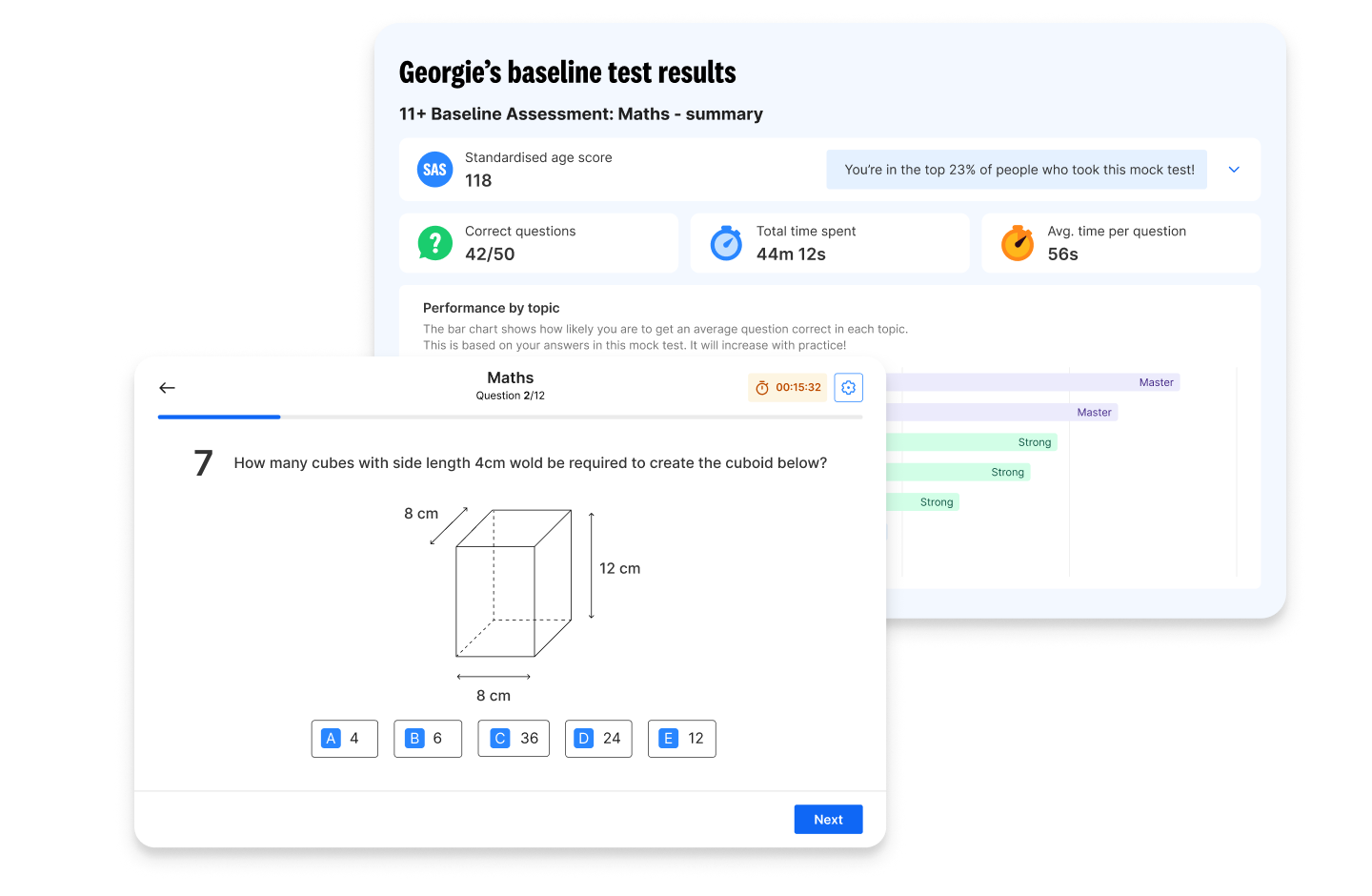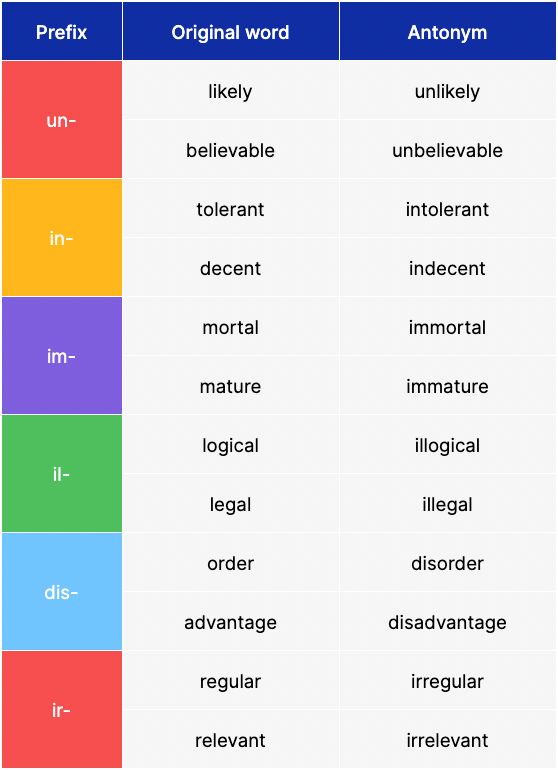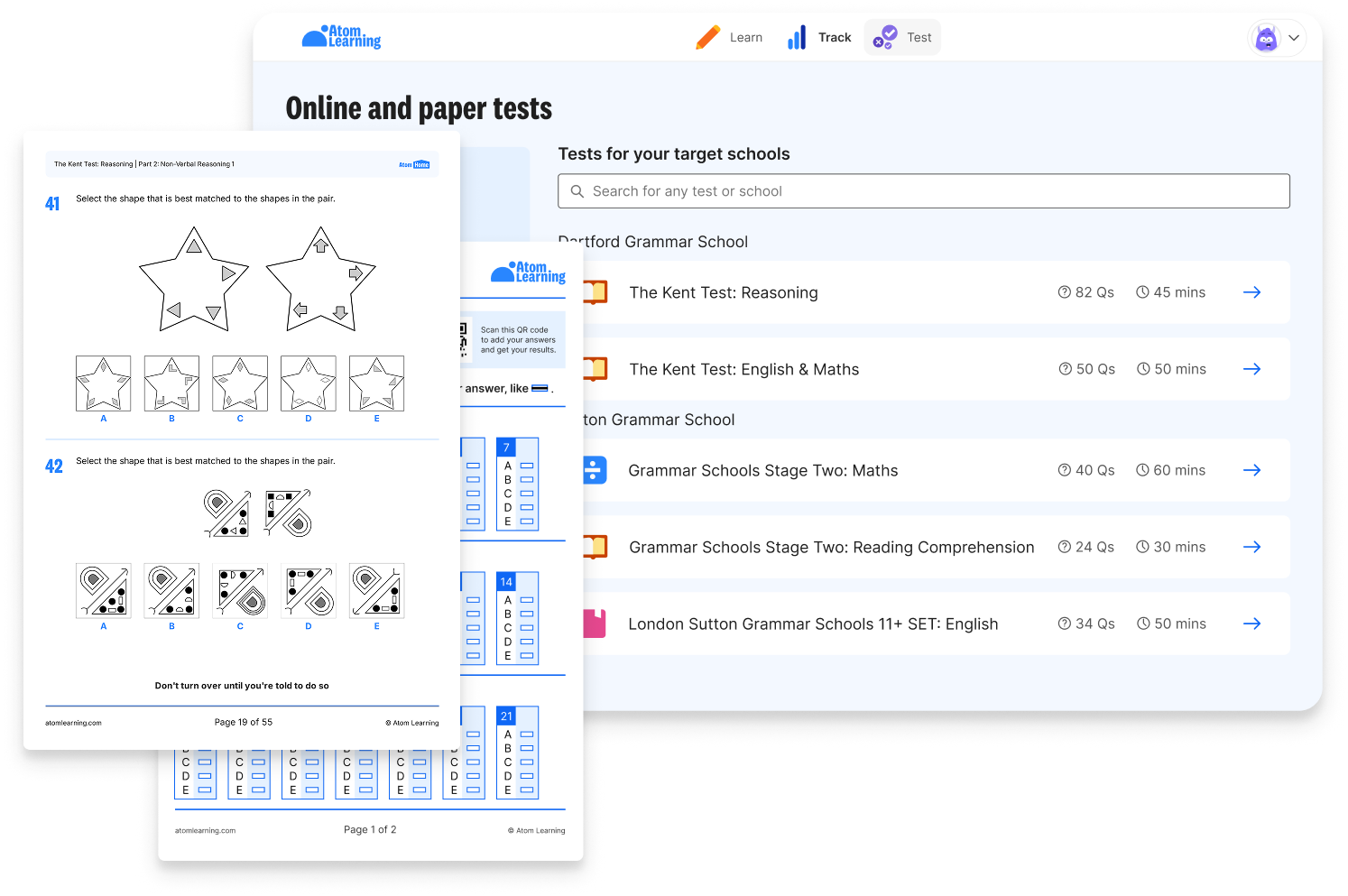11 plus synonyms and antonyms worksheets

Looking for 11 plus synonyms and antonyms worksheets? Here's how to support your child with synonyms and antonyms on entrance exams, along with free downloadable resources to build their confidence and knowledge!
What is a synonym?
Synonyms are words that mean the same thing as each other. For example, ‘pleased’ and ‘glad’ are synonyms because they are both adjectives that describe someone as happy.
Giving your child a thesaurus is a great way to build their knowledge of synonyms. Ask them to underline all the adjectives in a piece of text, then ask them to look up alternative words in a thesaurus. This exercise is a great way to build your child's confidence with identifying word classes too.
What is an antonym?
An antonym is a word that has the opposite meaning to another word. For example, the words 'wet' and 'dry' are antonyms because they mean the exact opposite of one another.
Antonyms will always be in the same word class as each other (for example, they will both be verbs, nouns, or adjectives).
Where do synonyms and antonyms come up on the 11 plus?
Synonyms and antonyms are a key topic your child will encounter on 11 plus verbal reasoning papers. They appear in papers set by GL Assessments and on the ISEB Common Pre-Test.
Synonym and antonym questions test your child's vocabulary skills and their understanding of word class and meaning. They often appear in cloze questions, where children have to pick the correct word out of a bank of words to make a sentence or passage make sense.
As well as the verbal reasoning paper, brushing up on synonyms will boost your child's creative writing skills, giving them tools to add more interest and variation to their writing.
11 plus synonyms
Question formats
There are two styles of synonym question on the 11 plus:
Identify the synonym of a given word
Your child will be given a word and must choose the answer which is a synonym for it.
- Example question: Which word from the list below is a synonym of boring?
- Answer options: reading, dull, interesting, magazine, writing
Identify two words
Both words must be in the same word class. There will be either two or three words in each group.
- Example question: Select the two words, one from each group, that are the closest in meaning.
- Answer options: hurtful, amusement, waiting | boring, rollercoaster, mean
Sometimes, synonyms may appear within the same group – this can catch children out. Remember to always select one word from each group, rather than two from one.
How to answer synonym exam questions
Identify the word class
The most important step for your child to consider when answering these questions is identifying the word class of the given word. Answers will be from the same word class as the given word.
Try it in the sentence
Synonyms can replace one another in a sentence without the meaning of the sentence changing. Your child can check their answer by replacing the original word with the answer they have selected to see whether it changes the meaning of the sentence.
Occasionally, two words may seem very similar in meaning. Your child must check that they are actual synonyms, rather than just similar. These subtleties can make synonym questions more challenging.
For example, ‘solve’, ‘consider’, and ‘decipher’, are all verbs linked to thinking and problem solving. But only ‘solve’ and ‘decipher’ refer to finding a solution or answer to or for something. In contrast, you ‘consider’ something before you make a decision about it.
Pay attention to nuance
Your child should be aware of nuance and ‘shades of meaning’. Although synonyms mean roughly the same thing, there will always be slight differences in their meaning. For example, if you asked someone how they were, and they said they were ‘ecstatic’, you would know this meant they were happier than someone who was ‘content'.
So, your child should pay attention to levels of nuance in the given word and choose the synonym that comes closest to it.
Watch out for homonyms
Homonyms are words that are spelled (or pronounced) the same, but have different meanings – and therefore are likely to be in different word classes. For example: the word ‘bore’ can be:
- A verb that means ‘to make a hole in something by digging or with a tool’. A synonym of this meaning could be ‘drill’ or ‘perforate’
- A verb that means ‘to cause one to feel uninterested or weary’. A synonym of this meaning could be ‘exhaust’
- A noun with a similar meaning to the above – a person whose behaviour or conversation is dull and boring. A synonym of this meaning could be a ‘nuisance’ or a ‘drag’
- The past tense form of ‘to bear’
Is your child ready for the 11+?
See where they stand in minutes. Atom’s free 11+ baseline tests give you an instant breakdown of their strengths and gaps. Know exactly what to focus on next and start preparing with direction, not uncertainty.

11 plus antonyms
Question formats
There are two styles of antonym question on the 11 plus:
Find the antonym of a given word
Your child will be given a word and must choose the answer which is an antonym for it.
- Example question: Which word in the list below is the antonym of 'delicious'?
- Answer options: tasty, sour, sprinkles, disgusting
Identify the pair of antonyms in two groups of words
There will be either two or three words in each group.
- Example question: Choose the two words, one from each group, that have opposite meanings.
- Answer options: sensible, careless, daydream | careful, decision, smart
As with synonyms, don't be caught out by these question types. Remember that you must select one word from each group, not two from one.
How to answer antonym exam questions
When working out pairs of antonyms your child will need to compare two words at a time from the words they have been given. They should start by reading through the words to see if any pairs are recognisable immediately. If not, then begin with either the single word they have been given, or the first word of the left-hand group.
Identify, define, and double check
There are three simple steps for finding antonyms: identify, define, and double check:
- Identify: begin by identifying the word class of the words you are comparing. We know that antonyms are always in the same word class so check to see if they are all verbs, adjectives or conjunctions.
- Define: can you define the words you are comparing? Do they mean something positive or negative? Then, can you work out how positive or negative they are? We call this 'word strength'. Antonyms will always be opposite in meaning with the same word strength.
- Double check: once you think you've found a pair of antonyms, use them in the same sentence. Replacing a word in a sentence with its antonym will change the meaning of the sentence to its opposite.
Prefixes
Prefixes can be added to words to create antonyms. Lots of antonyms are compound words – words that have been made by adding a prefix like un-, in-, im-, non-. The table shows some examples of these types of antonyms.

Misleading words
Watch out! Some pairs of words seem like antonyms but aren't related. Download our misleading words list. Becoming familiar with these words will help your child to avoid getting caught out.
Take control of your child’s 11+ preparation.

Not sure if your child is on track for the grammar school 11+? You don’t need to guess what to cover or whether they’re ready. Atom shows you exactly what to practise each week and how they’re performing, so you can stay ahead of the process without the stress.
- Follow personalised weekly exam plans that show them what to learn next.
- Download replica 11+ practice papers and upload a photo for instant, stress-free marking.
- Track progress and see how they compare to others applying to the same schools.
Start your free trial and help your child feel fully prepared for the 11+.

.avif)


